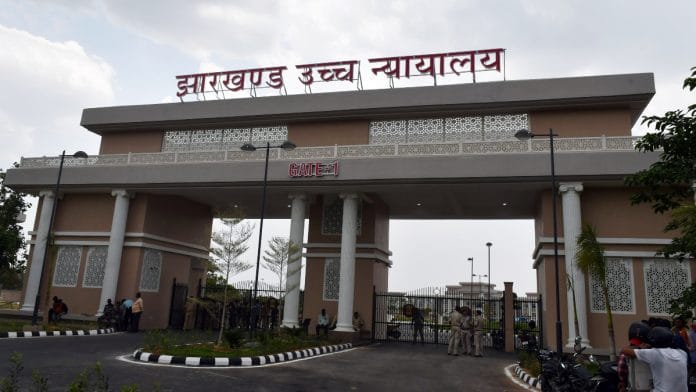New Delhi: The Jharkhand High Court has ruled that there cannot be discrimination between those with physical illness and those with mental illness, and both are entitled to receive the same benefits of treatment.
Noting that the medical insurance scheme at Coal India did not cover mental illness treatment for the wife of a retired employee, a single-judge bench of Justice Ananda Sen directed company subsidiary Bharat Coking Coal Limited (BCCL) to reimburse admissible expenses to former staff Santosh Kumar Verma. Verma filed a plea in court after BCCL denied his wife’s claim for psychiatric treatment.
In its judgment, the court said, “A patient receiving psychiatric treatment has to get the same benefit similar to a person suffering from physical illness, and as the CPRMS provides for giving several benefits to the persons suffering from physical illness, persons suffering from mental illness are also entitled to receive the same benefit without any discrimination.”
The court noted that the CPRMS or the “Contributory Post Retirement Medicare Scheme for Executives of CIL & its Subsidiaries” came into existence in 2008, nearly nine years before the passage of the Mental Healthcare Act 2017.
An “exclusion clause” in the medical insurance scheme—Clause 6.3—listed conditions and diseases for which the company would not reimburse expenses incurred during treatment. It said, “…any psychiatric treatment is excluded from reimbursement”.
The clause also excluded intentional self-injuries, venereal or sexually transmitted diseases and any illnesses attributable to the use of intoxicating drugs or liquor from its ambit.
The court relied on Section 21 of the Mental Healthcare Act, 2017, which states, “Every person with mental illness shall be treated as equal to persons with physical illness in the provision of all healthcare, including emergency facilities, services like ambulances and living conditions at health establishments, among others.”
Section 21 (4) adds: “Every insurer shall make provision for medical insurance for treatment of mental illness on the same basis as is available for treatment of physical illness.”
In its 7 February ruling, the court noted that the insurance scheme of Coal India was directly at odds with the 2017 Act provisions and said, “Clause 6.3(i) of the CPRMS—which denies reimbursement of any expenses incurred by the member for psychiatric treatment—is directly in conflict with various provisions of the Mental Healthcare Act, 2017, especially Section 21(4) of the Act. This discrimination made in the CPRMS is not based on any intelligible differentia.”
The 2017 Act came into being as the Mental Health Act 1987 was deemed insufficient for protecting the rights of people with mental illness and for promoting their access to mental healthcare in the country.
The new legislation repealing the 1987 Act aimed to provide mental healthcare and services and, during their delivery, protect, promote, and fulfil the rights of people with mental health problems.
It acknowledged that people with mental illness are a vulnerable section of society and face discrimination.
(Edited by Gitanjali Das)
Also Read: ‘Reason to believe not guilty’ — What Jharkhand HC said while granting bail to Hemant Soren






